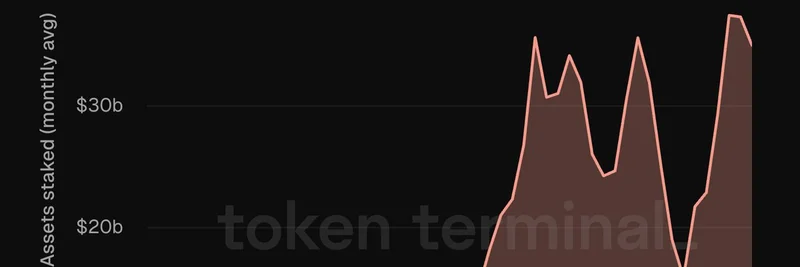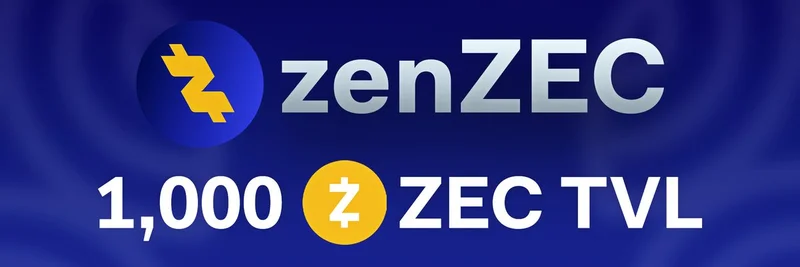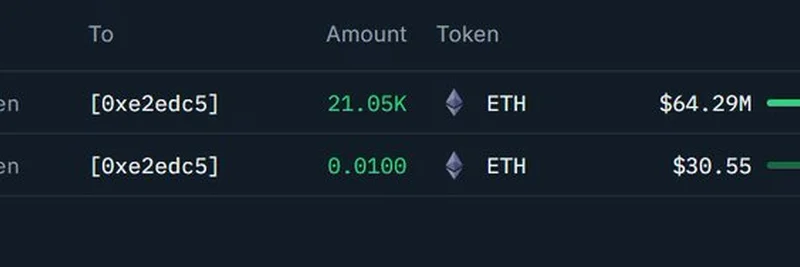Lido Finance has been a cornerstone in the DeFi space, particularly for Ethereum staking. A recent post from Token Terminal highlights an intriguing trend: since May 2021, Lido's market cap has
- Lido Finance evolved from multichain expansion to Ethereum focus and governance strengthening, despite market cap decline.
dipped from $3 billion to $1 billion, while the assets staked on the platform have skyrocketed from $1 billion to $35 billion. This contrast tells a story of resilience and strategic pivots in a volatile crypto market.
The analysis breaks down Lido's path into three distinct phases, each reflecting a shift in strategy to adapt to the evolving blockchain landscape. For those new to the space, Lido is a liquid staking protocol that lets users stake their ETH (or other assets) without locking them up completely. In return, you get a token like stETH, which you can use in other DeFi apps while still earning staking rewards. It's like having your cake and eating it too – liquidity plus yields.
Phase 1: Expand – Multichain Rollout
In its early days, Lido aimed to grow aggressively by expanding beyond Ethereum. This meant rolling out staking services on other blockchains like Polygon, Solana, and Polkadot. The goal was to capture a broader user base and tap into the booming multichain narrative during the 2021 bull run.
This phase saw rapid adoption as users flocked to Lido for easy staking across ecosystems. It helped boost those staked assets significantly, as more chains meant more opportunities. However, it also spread resources thin and introduced complexities in maintaining security and decentralization across different networks.
Phase 2: Refocus – Consolidation Back to Ethereum
As the crypto winter set in and market conditions shifted, Lido made a bold move to consolidate. They phased out support for some side chains – for instance, sunsetting Solana staking in 2023 – and doubled down on Ethereum, the king of smart contract platforms.
This refocus was about streamlining operations and leveraging Ethereum's dominance in DeFi. With upgrades like Dencun and upcoming Pectra, Ethereum's efficiency improved, making it a safer bet. The result? Staked assets continued to climb, even as the broader market cap for LDO (Lido's governance token) took a hit from bearish sentiments.
Phase 3: Fortify – Decentralization and Governance Hardening
Now in its fortification stage, Lido is prioritizing long-term sustainability. This involves decentralizing its node operator set – essentially, spreading out who runs the validators to reduce centralization risks. They've introduced community staking modules, allowing smaller operators to join, and implemented dual governance systems to give stETH holders more say alongside LDO holders.
These steps address criticisms about Lido's dominance in Ethereum staking, which at one point controlled over 30% of staked ETH, raising concerns about network centralization. By hardening governance, Lido aims to make the protocol more resilient against regulatory scrutiny and internal disputes.
What does this mean for blockchain practitioners? In a world where meme tokens often chase hype without substance, Lido's story is a lesson in adaptation. While market caps can fluctuate wildly, building real utility – like secure, liquid staking – drives lasting value. If you're into memes, think about how projects could apply similar phases: expand virally, refocus on core strengths, and fortify community governance to survive beyond the pump.
For more insights on DeFi trends and how they intersect with the meme token ecosystem, keep an eye on Meme Insider. Whether you're staking ETH or hunting the next viral coin, understanding protocols like Lido can give you an edge in the crypto game.



